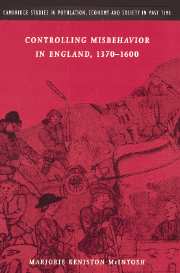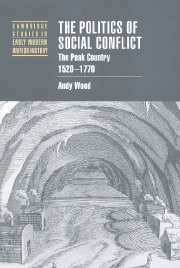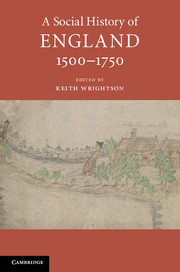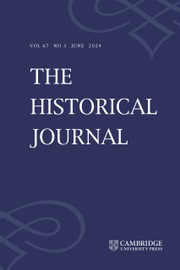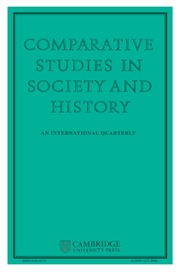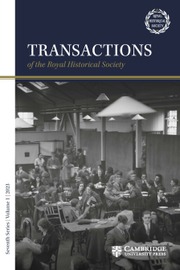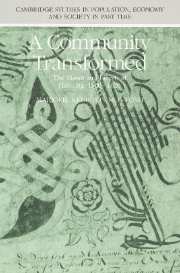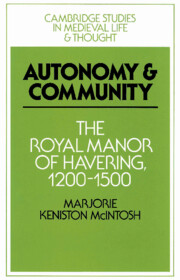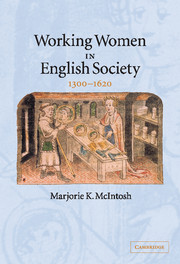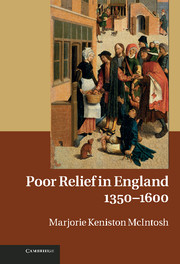Controlling Misbehavior in England, 1370–1600
Through an examination of 255 places in England, Professor McIntosh argues against the suggestion that social regulation was a distinctive feature of the decades around 1600, resulting from Puritanism, and demonstrates that concern with wrongdoing mounted gradually between 1370 and 1600. This trail-breaking study of how English people defined and attempted to control misbehavior opens up little-known sources and new research methods, challenges many historical assumptions and sheds light on the transition from early medieval to early modern patterns.
- Straddles the artificial gap between medieval and early modern studies
- Calls for a widening of the re-examination of Puritanism and what characterized the early modern period
- Uses an enormous amount of previously neglected archival material left by village and market town public courts
Reviews & endorsements
"This book provides a wealth of new information and innovative analyses, adding greatly to the literature on poverty and deviance.... Upper-division undergraduates and above." Choice
"This is a very thorough study and seeks its documentation widely and well." Biblitherques D'Humanisme
"This is an interesting and important book that examines the longue dureé of social regulation from the fourteenth century to the end of the sixteenth. She is thus able to shed new light on the wider context of the Puritan moral reform movement in the period before the English Civil War." Peter Clark, American Historical Review
"This is a meticulous yet engaging piece of scholarship. and though it is written primarily for historical specialists, it should be read by sociologists interested in the moral order and social regulation." David Zaret, American Journal of Sociology
"..the book undoubtedly raises interesting and challenging questions, while its account of social regulation in the hitherto-neglected manorial courts of fifteenth- and sixteenth-century England will be of enduring value." Martin Ingram, Albion
"...commendable ambitions..." Sherri Olson, Speculum - A Journal of Medieval Studies
"This significant book...offers a valuable window into the values of social groups that are difficult to bring into historical focus." Church History
Product details
June 2002Paperback
9780521894043
312 pages
229 × 152 × 18 mm
0.46kg
8 maps 17 tables
Available
Table of Contents
- List of illustrations
- List of tables and lists
- Acknowledgements
- List of abbreviations
- Introduction
- Part I. The History of Social Regulation:
- 1. The forms of control
- 2. Methodological underpinnings
- 3. Social regulation in England's smaller communities
- 4. Social concern in other contexts
- Part II. Factors that Influenced Social Regulation:
- 5. Some political considerations
- 6. Social ecology I: 'broad response' and 'no response' communities
- 7. Social ecology II: analysis by type of offences reported
- 8. Ideological/religious influences
- Conclusion: social regulation and the transition from medieval to early modern England
- Appendices
- Bibliography
- Index.

